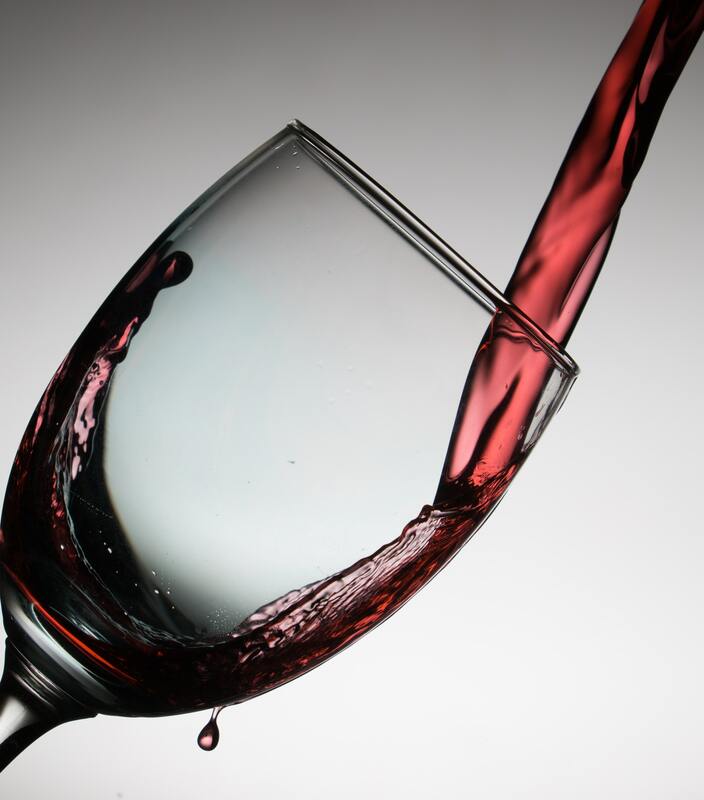|
With Passover set to begin on April 19th, why not raise a glass of Kosher wine? We had no idea there was such a thing. And since we love wine, we’re willing to imbibe a divine glass… for research purposes, of course. “When it comes to taste, there’s no difference between kosher and non-kosher wine,” said Jay Buschbaum. Executive VP of Marketing and Director of Wine Education at Royal Wine Corp—the top kosher wine purveyors in America. “In fact, many kosher wines are award-winning—beating out their non-kosher competitors for top varietal prizes.” Two snaps and a dreidel! Let’s get some things straight about kosher wine. This wine is not blessed by a Rabbi. For a wine to be deemed kosher, there are strict purity guidelines that need to be followed from the moment the grapes enter the winery to when the wine is bottled. All ingredients used in the process must be kosher as well. Get your kosher wine facts on: 1) Kosher wine is made in precisely the same way as ‘regular’ wine. The only difference is that there is rabbinical oversight during the process and that the wine is handled by Sabbath-observant Jews. 2) Not all Israeli wines are kosher. Only about 30% of Israeli wine brands are certified kosher, but these kosher wineries produce over 90% of the Israel wine industry’s output. 3) In the 1980s, there were very few kosher wines. 4) The number of producers of kosher wines has dramatically increased in the past 10 to 20 years. 5) While several well-known wineries in countries from all over the world including France, Spain, Italy, and Argentina are crafting special runs of kosher wine, California is not. Except for Marciano Estate, which produces a kosher run of their Terra Gratia, a high-end Napa Valley Blend, all kosher California wine is made by fully kosher wineries such as Herzog Wine Cellars, Covenant and Hagafen. 6) The reason many Passover dinners feature red wine is because there’s a rabbinic opinion that red wine is preferable since it’s the same variety that Jews used during their Seders after they escaped Egypt. 7) Kosher wines can range in price from $5.00 a bottle to $500. The average price for a bottle of good kosher wine is $25. 8) The most popular Moscato in the U.S. happens to be kosher. Bartenura produces the largest selling imported Italian Moscato in the U.S. The Moscato in the famous blue bottle sells over 5,000,000 bottles annually, only a fraction of which to the kosher market. 9) Currently there is a steady increase in total wine consumption and a great interest specifically in high-end Israeli wines, as well as the better French wines. 10) Drinking wine can be a Mitzvah (good deed). Kosher wine is prescribed for use in many Jewish rituals: Bris Milah (circumcision), the wedding chuppa (canopy), and the Kiddush that starts all Sabbath and holiday meals. While most occasions call for just one cup, on the holiday of Purim, wine (in abundance) is the beverage of choice for the festive meal, recalling wine’s significant role in the "banquets" described in the Megillah story. On Passover, Jews are required to drink four cups of wine at the Seder. Apple Bourbon Sangria
Ingredients:
1 bottle red kosher wine 1 orange, cut into thin wedges 1 large pear sliced into thin wedges 1 large apple sliced into thin wedges 6 3-inch cinnamon sticks 1 cup bourbon ½ cup apple juice Soda water and ice to top, optional Directions: Slice fruit and put into a pitcher. Stick cloves into one or two of the orange wedges to keep them from floating around. Add all the liquids and stir. Let mixture sit in the fridge for at least a day. Comments are closed.
|
AuthorHaus of V is a creative collective that shares a similar mindset -- with a twist. Archives
June 2020
Categories
All
|

 RSS Feed
RSS Feed